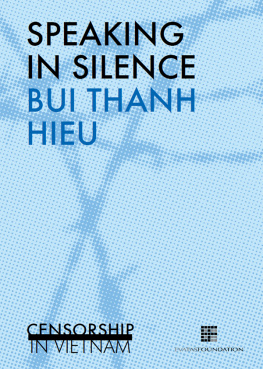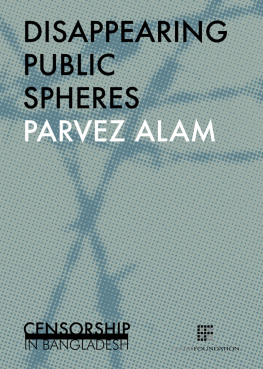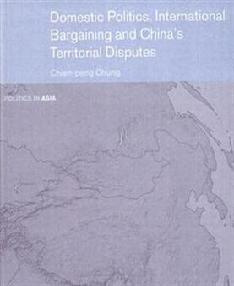Copyright Bui Thanh Hieu
Book design Edwin Smet
ISBN 978-94-6225-165-6
www.evatasfoundation.com
Thanh got to work at 7:45 am and, out of habit, he proceeded to brew some tea and wipe the top of his desk. Although it was spotless, he cleaned it anyway a daily ritual over the past ten years, ever since it had become his property.
Soon after graduating from the Public Security University eighteen years ago with a degree granted by the Counter-reactionary Department, he had been assigned to work as an intern in the Office for the Defense of Internal Political Thoughts. Five years of experience had earned him an office of his own and the position of squad leader, letting him have twenty plus agents at his command.
Thanh opened a drawer of the file cabinet to retrieve the dossier on Object B, who had been left in his charge these past two years. B was a war veteran and a poet who had once won a literary award in the province. Now over sixty years old, he had created a blog and taken to writing articles attacking the regime. His blog had attracted the attention of the Internet Propaganda Squad, of the Bureau of Culture and Communications, which had gathered his articles together and meticulously analyzed his wording, finding in it an undertone of anti-government propaganda. Subsequently, the Bureau of Culture and Communications had forwarded the file on B to Thanhs office.
Stopping such reactionary elements was a task assigned to Thanhs office, whose existence few people suspected the Office for the Defense of Internal Political Thoughts, an integral part of Section 5 of the Department of Public Security.
Over ten years ago, the Internet had not been widespread in Vietnam, and elements like B had to put their thoughts down in longhand first and then pass their written message around, or find a photocopy shop to make handout copies of it. But these shops had been carefully watched and regularly told to be wary of possible illegal activities. The Security Office and local governments had collaborated in organizing private education sessions for owners of copy shops about how to look out for materials detrimental to national security. A hand-written text would be clear evidence of criminal wrongdoing.
At the beginning of his career, Thanh had been ordered to stake out a photocopy shop frequented by this man. One day the man had walked in and handed his poem to the proprietor to make twenty copies. Thanh then signaled to his teammates and they rushed in to arrest him when he picked up the copies still hot from the copy machine.
During those days, Thanhs job had been much simpler than it was now. With just that one case, he had achieved recognition despite only having to stay put in one location and wait for the suspect to show up with incriminating evidence in his hand.
But then the Internet had come along with a bang, and these characters no longer had to physically go anywhere to secretly pass copies of their articles around. They stayed home and used their computers to collect material and write pieces detrimental to the regime, and then sent them out over the Internet at a speed that could not be controlled like before. Checking the spread of their reactionary ideas at copy shops had become obsolete. Even the installation of a nationwide firewall only partially limited the amount of propaganda launched by these characters. In the end, the best, time-tested means was the deployment of humans, in whose hearts evil lurked.

Thanh went over the dossier containing articles written by B, supplied by courtesy of the Bureau of Culture and Communications. The batch had up to forty pages showing an increasingly strident tone, with which he even dared to blacken the Prime Ministers name. Closing the file, Thanh picked up the phone and called a subordinate.
What are you doing? he yelled upon hearing an electronic twittering sound at the other end. Playing video games? Have you got nothing to do in the morning?
Sir, what could I do for you? answered a voice through the earpiece. Come over here right now, Thanh shouted. Ive got things for you to do. A young agent sporting a South Korean hairstyle stepped into the room.
Check Bs blog and search for his old articles, those with uncritical contents, and print them out for me, Thanh said. The ones written up to 2010. And tell Dung to come in here. Skinny Dzung shuffled in.
Get yourself down to the ward where B lives, Thanh told him. Ask for a verification of his family background and learn where his wifes working and where his children are attending school. Tell the ward cadres to provide as much information about his family as possible. Go now! Skinny Dzung scratched his ear.
Could I have a letter of introduction? Those ward guys now all have their own business interests. Tell them to do something for you and very soon they all start getting restless and ready to leave, giving you sketchy details only.
If you cant threaten the local guys, what can you do? Thanh barked. If I werent here, who would get a letter for you? Just act high-handed and put all the blame on them. Theyre responsible for their ward and yet they let suspicious characters get online maligning and slandering the regime without being aware of it. Theyre only good at extorting money from restaurants and other businesses.
Even while saying so, Thanh opened a drawer of his desk and retrieved a stack of stamped letters of introduction bearing the name of his immediate superior. He wrote in Dungs name and slid it across the desk to him.
Then, pouring himself a cup of tea and taking a sip, Thanh lit a cigarette. Suddenly, he recalled that in the morning he had forgotten to tell his wife to ask his uncle for a loan to build their new house. His office had granted him a plot of land two years ago and now that his job had become stable with him no longer having to travel as much as before Thanh wanted to start the construction of the house so that he would have a decent place to receive his guests. The house he was living in was inherited from his parents, the front of which had been turned into a store for his wife to sell sundry goods. With New Year just around the corner, they had to stock up on goods to sell. The merchandise filled up most of the houses interior and barely any room remained for the occupants to move about, let alone for entertaining guests.
From his pocket, Thanh fished a phone, the one set aside for calling only his wife. She also possessed one only for talking with him. For security personnel charged with the task of defending the regime, their phones were always tapped as a safeguard against potential leaks of classified information.
Thanh went out into the yard outside his office and called his wife. Honey, were you able to get a loan from Uncle? asked Thanh.
He said to give him at least two more months, his wife replied. These days, the police keep raiding his bar. Short-term tenancy for his employees is out, and without renters hes sort of hard up.
Please tell him to try to get the money for us, said Thanh, and let me handle that matter.
Thanhs uncle had started a karaoke bar, and he let his son run it. Sometimes, when the office had a party or when his superior needed to relax and have fun, Thanh would take them there. He wondered what the local police had against short-term tenancy. Maybe a competitor hired them to cause problems for his uncle.
Thanh went by a computer room used by his subordinates and saw Long surfing the Internet. Long, come over to my office, he said. Ive got a big favor to ask of you.
Yes, sir, said Long, who then stood up to follow him.











